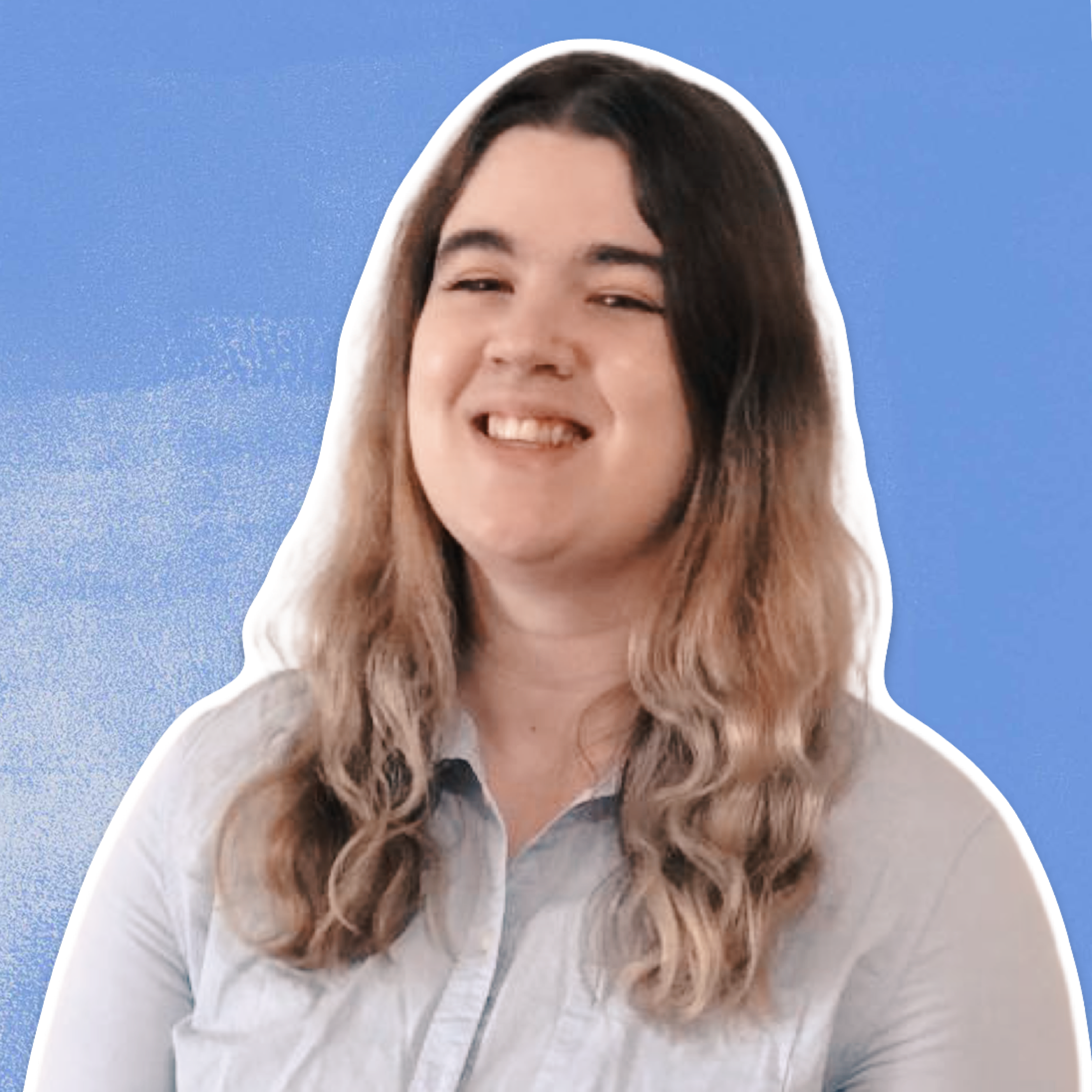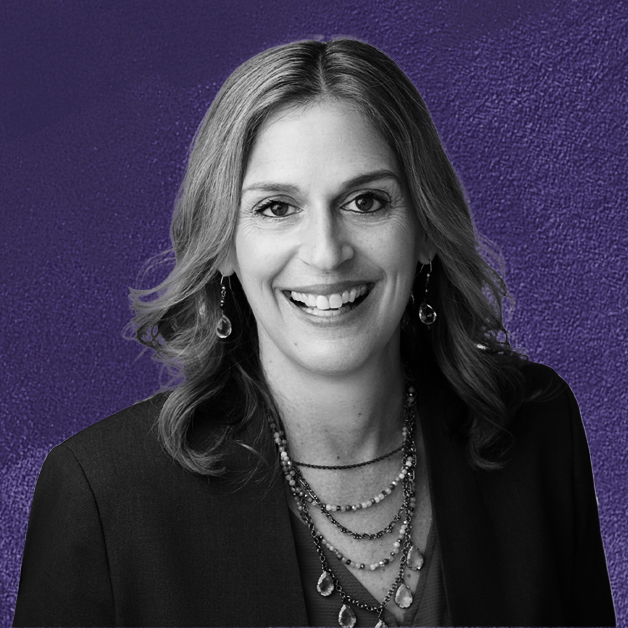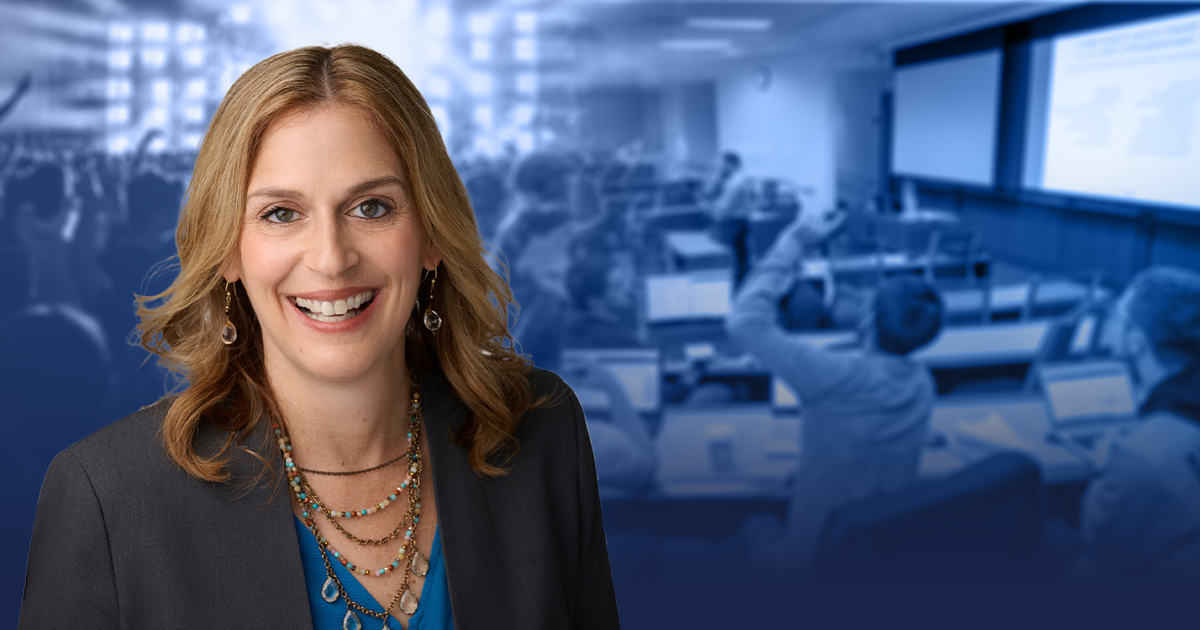
Darby Joyce
Content Marketing Coordinator
The business and entertainment program at the Kogod School of Business has grown drastically over the past ten years. Under the leadership of management professor John Simson, the program’s size and scope have ballooned, creating a cohort of students who graduate ready to face the unique challenges at the intersection of business and creative industries. For Linda Bloss-Baum, the program’s new assistant director, this growth is best demonstrated in its nationwide recognition.
“I travel to a lot of different conferences and meetings, and I’ve absolutely seen people recognize the program as a leader in churning out high-quality students all around the industry,” she said. “Just this spring, I got a call from Universal Music asking me for candidates for jobs they might have. Our recognition—not only in academia but also in the industry—has grown rapidly.”
Though Bloss-Baum joins Kogod this fall as a full-time faculty member, she’s been involved with the business and entertainment program since its inception in 2013. At the time, she was working at Warner Music Group, navigating the music industry as sales and mergers transformed its landscape. Simson, whom she met through his work at SoundExchange, asked her to teach as an adjunct professor; as an AU alumna, she was excited by the opportunity.
“I was a communications major here at AU in the late eighties,” she explained. “It’s been such a thrill to return to campus and relive my time as a student. I’ve gotten to know, respect, and work with ten years’ worth of alums, which really made me fall in love with the program.”
Bloss-Baum’s course, “Protecting the Creative Class in the Digital Age,” ties into discussions surrounding artists’ rights that are just as relevant today. While the digital distribution of all types of art can benefit artists by expanding their audiences, it can also lead to copyright issues and ensures that royalties are paid fairly. “When we started this course ten years ago, the huge question was piracy,” Bloss-Baum recalled. “If you’re a photographer who’s used to a more analog world, and suddenly your pictures are up on the Internet, how in the world are you going to make sure you’re being paid for that?”
Bloss-Baum is uniquely equipped to discuss these issues from multiple perspectives; after working in communications law on Capitol Hill and adapting to the rise of streaming services during her time with Warner, she joined SoundExchange herself in 2014, eventually becoming the group’s senior vice president of government relations and public policy.
“I’ve worked very carefully with so many different aspects of the music industry,” she said. “It’s been really fun to bring my expertise and context into the classroom.”
As an industry veteran, Bloss-Baum knows the value of learning through doing very well. Her courses incorporate experiential learning both in and out of the classroom, from bringing in creative professionals as guest speakers to writing memos to public officials. Musicians, filmmakers, photographers, and authors alike have met with her students, forging connections that often lead to those students working alongside them later in their careers. Her course’s midterm entails grant writing for a creative organization of the student’s choice. At the same time, the final exam involves writing to a local municipality, explaining the value of promoting creative ventures in their city and laying out steps to do so. These real-world assignments allow students to apply their knowledge in a way that translates into their post-graduation work—a chance that Bloss-Baum says is especially valuable in the fast-paced entertainment industry.
Being in the workforce for the entirety of my career, I’ve learned that you just have to get in there and do it. You can’t just sit and think about it, or write about it, or research and reflect—you actually need to get out and start doing the work.”

Linda Bloss-Baum
Assistant Program Director of Business and Entertainment, Kogod School of Business
This philosophy was best reflected last semester when Bloss-Baum taught a special topics course on planning and networking through the lens of the SXSW conference in Austin, Texas. Before attending the conference, she assigned her students a project—make one hundred business cards and hand them all out by the end of the event.
“They looked at me like I was 150 years old,” she joked. “But when we got there, and they met hundreds of people, they understood the value. Sometimes you’re out and can’t get the Wi-Fi to work for your digital introduction, but you have the paper business card, so you can still make an impact.” By the end of the trip, the students had gained networking experience, a skill that’s all too valuable in business and entertainment alike.
As Bloss-Baum prepares to join Kogod’s full-time faculty, she’s looking ahead to ensure she keeps readying her students for the challenges of creative work. As AI capabilities continue to expand into the arts, she is concerned for the protection and job security of artists across the spectrum—will companies still pay real people to write songs and paint pictures if they can get a computer program to do it?
“Even if AI can take over some of our functions, what I’d like to impart to my students is that creativity is really specific, and it needs to have that human input. We have to think about how that can be incorporated into a digital world,” Bloss-Baum remarked.The fundamentals of creativity are still the same—there’s a human feature and focus that will always be necessary.”

Linda Bloss-Baum
Assistant Program Director of Business and Entertainment, Kogod School of Business
Beyond preparing students for these emerging discussions, Bloss-Baum also looks forward to getting to know them better now that she’s in a full-time role. As an adjunct professor, she typically only saw students for one semester; now that she has expanded her role at Kogod, she has the chance to help students at every stage of their academic career.
“Particularly since COVID, I’ve found that more students want to just come into the office and talk—sometimes it’s not about the course, but to connect with their professors, to talk about their ideas and goals,” she said. “I’m really eager to be on campus and cultivate those student relationships a bit better.”
As an alumna herself, Bloss-Baum can relate to the student experience. After beginning her career as an AU student and branching out into the entertainment world in DC and beyond, she finds returning to her alma mater particularly fulfilling. “I branched out from American University, and coming back as a full-time faculty is a dream,” she said. “It sounds completely corny, but I’m coming home.”
